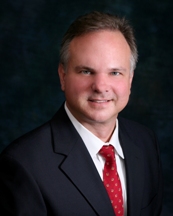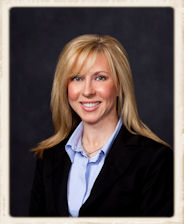June Newsletter from Pleat & Perry, P.A.
 |
|
|
4477 Legendary Drive
For more information
|
Volume Three - June 2010 |
|
OIL SPILL NEWS Many of our clients have experienced loss of business due to the Deepwater Horizon/BP oil spill. We are assisting clients in reviewing their business insurance policies for possible claims. Pleat & Perry, P.A. is accepting loss of business interruption insurance claims. If you have a business insurance policy, we offer a free consultation and review of your policy to determine your claim rights under your policy for recovery of loss of business revenue/business interruption caused by the spill. We are accepting these type of insurance claims on a contingency fee basis. Board Announcement Partner, West Ritchie, Esq., was recently appointed to the Board of Directors for the Walton Area Chamber of Commerce (www.waltoncountychamber.com). Attorney invited as speaker
J. Jerome Miller, Of Counsel to the firm of Jerry is a Past President of the Florida Municipal Attorneys Association. Jerry is the City Attorney of the City of Destin, with 35 years municipal law and land use experience. He is a graduate of the Florida State University where he received both his bachelors and law degrees. He is AV rated by Martindale Hubbell Law Directory, by peer rating, the highest rating available for both legal acumen and ethics. Jerry is a past President of the Florida Municipal Attorneys Association (2000-01) and recipient of The Paul Buchman Award as Florida’s Outstanding Municipal Attorney of the Year (2004-05). Successful completion of the Academy requirements by participants leads to Certification of City Clerks by the Association. For more information about the Academy or the event, visit www.floridaclerks.org. Partner travels to D.C.
According to their website, the Northwest Florida Defense Coalition: Representing one of the largest military concentrations in America, the Northwest Florida military community is consolidated to support our National Security strategies by supporting and enhancing military installations and overall mission performance in the Florida panhandle. Strategically located and critically positioned for Joint Operations, Research & Development, Test & Evaluation, and Training, the Northwest Florida military community is a truly unique collection of continuing global war on terrorism. With more than 35,000 uniformed military and a $10.1 billion defense-related GRP, Northwest Florida’s breadth and depth of the defense industry makes it one of the most influential military regions in the world. As a vibrant region that shares common issues, goals and ideals, we are dedicated to strategically enhancing our installations by diversifying our economic development efforts. Building upon existing military missions and current defense industry infrastructure, our intent is to consolidate our strengths and commonalities, when applicable, to become one of the most viable and progressive regions in America. Conducive to economic opportunity and compatible with military readiness, our overarching goal is to enhance Northwest Florida’s contribution to national defense and to connect our industry talent, experience and resources to make a difference on issues we have identified as critical to the long-term viability of the region. Its Strategic Goals are:
Eleventh Circuit Recognizes Theory of Second Hand Harassment
Eleventh Circuit Recognizes Theory of Second Hand Harassment Recently, the Eleventh Circuit Court of Appeals–the federal Court of Appeals with jurisdiction over Florida, Georgia, and Alabama–decided an important sexual harassment case that will affect all businesses that have fifteen or more employees. Facts of Case: The case, Reeves v. C.H. Robinson Worldwide, Inc. involved a woman who worked as a transportation sales representative at a shipping company. She was the only woman who worked on the sales floor, and she worked in close proximity with six men. She alleged that the men with whom she worked regularly used vulgar and offensive language. Much of the language was not gender specific, and instead, were general four-letter words. Some of the language, however, was gender specific. For example, according to Ms. Reeves, the words “b_____,” whore, and “c____” were used regularly. Ms. Reeves also complained that the employees listened to a crude morning show on the radio, and the show had regular discussions of women’s anatomy and sexual topics. On one occasion, she observed that one man had a vulgar picture of a nude woman on his computer screen. She told him she was offended and very upset, and he apologized. This never occurred again. On a couple of occasions, the men in the office allegedly singled out the only other woman who worked in the branch, and referred to her as a “b____.” They also commented on the size of her backside. In contrast, none of the men in the office ever called Ms. Reeves a derogatory, gender specific word. She was never touched inappropriately, and was never propositioned. No one ever asked her about her sex life, or ever made any inappropriate comments directly to her. Nevertheless, Ms. Reeves alleged she complained to management repeatedly about the vulgar language and radio show, but nothing really changed. Eventually, she quit and sued the employer for sexual harassment in federal court. Lower Court Holds Ms. Reeves Has No Case, But Result Changed on Appeal: The district (trial court) threw out Ms. Reeve’s case at the summary judgment stage–concluding that even if everything she said was true, she still could not make out her claim as a matter of law. The court reasoned that the derogatory language was not motivated by Ms. Reeve’s sex because the language was not directed to her. The court also reasoned that the language was used and the radio program was played in the presence of all employees, both male and female, and accordingly, Ms. Reeves was not singled out because of her sex. Ms. Reeves appealed. The 11th Circuit reversed, concluding that Ms. Reeve’s case should be heard by a jury. Court Reasons that Sex-Based Derogatory Terms Can Be Sufficient for a Plaintiff to Get Her Case to a Jury, Even if the Terms are Not Directed to the Plaintiff: The Eleventh Circuit noted that the federal law prohibiting discrimination based on sex, race, color, national origin, and religion is “not a civility code, and not all profane or sexual language or conduct will constitute discrimination in the terms and conditions of employment.” Similarly, the court noted, “In a case like this, where both gender-specific and general, indiscriminate vulgarity allegedly pervaded the workplace, we reaffirm the bedrock principle that not all objectionable conduct or language amounts to discrimination . . .” The Court further emphasized that the context of the offending words or conduct are critical.
Nevertheless, the court noted that certain words, such as “b____,” “slut,” and “whore” are “firmly rooted in gender . . . [and are] humiliating and degrading based on sex.” The court further reasoned, “[The law] does not offer boorish employees a free pass to discriminate against their employees specifically on account of gender just because they have tolerated pervasive but indiscriminate profanity as well.” Most importantly, the Court concluded that a plaintiff can establish a hostile work environment claim by showing severe or pervasive discrimination directed against his or her protected group, “even if she herself is not individually singled out in the offensive conduct.” As the Court colorfully elaborated: “It is enough to hear co-workers on a daily basis refer to female colleagues as ‘b______s,’ ‘whores’ or ‘c____s,’ to understand that they view women negatively, and in a humiliating or degrading way. The harasser need not close the circle with reference to the plaintiff specifically: ‘and you are a ‘b___,’ too.” What the Case Means for Employers: In the sexual harassment context, a plaintiff always must demonstrate that the conduct he or she is complaining about is unwelcome and personally offensive to him or her. Sometimes, employers can defend sexual harassment claims by demonstrating that the plaintiff employee was not bothered by the conduct, and may actually have encouraged it. This occurs sometimes when a man and woman flirt with each other in the workplace, or consensually engage in sexual banter. The Reeves decision and its principles expand employers’ potential liability. Now, the fact that the target of the conduct acquiesces in it may not be enough to avoid liability. Now, employee “bystanders” can claim they are offended, and bring a claim for what is sometimes called “second-hand harassment.” Another example of a second-hand harassment situation illustrates how and why employers should be cognizant of inappropriate comments and actions in the workplace, even if some employees do not seem bothered. Imagine a workplace with mostly men and a few women. Imagine that one woman, Anna, flirts with the men, exchanges dirty jokes with them, and generally talks trash with them. Imagine that the conducts escalates, but Anna does not mind. On the other hand, the other female employees in the office, Beth and Caroline, do mind. They are very offended, even though the sex trash talk is not directed to them. If Anna ever sued the employer for sexual harassment, the employer could argue that even if the conduct was objectively offensive, Anna was not offended. Instead, she was a willing participant and contributed to the environment. On the other hand, this defense will not work for any claims brought by Beth or Caroline. Instead, they may now be able to claim that they were the victims of second hand harassment. This case and its principles apply to all employers who have 15 or more employees. The principles also apply outside the sexual harassment context, and apply to harassment claims based on other protected characteristics such as race, age, national origin, disability, and religion. The good news is that the Court did reaffirm that the law is not a general “civility code” for the workplace, and that any unlawful harassment must be severe or pervasive before it is actionable.
Nevertheless, in light of this decision, employers would be wise to be vigilant, and not allow inappropriate conduct to go unchecked simply because some employees do not seem to mind. Also, as always, employers should make sure their anti-discrimination, anti-harassment, and anti-retaliation policies are up to date, and that employees are being trained appropriately.
Contact the law firm of Pleat & Perry, P.A. for all of your legal needs. 4477 Legendary Drive, Suite 202 |
|
| Disclaimer: The information you obtain at this site is not, nor is it intended to be, legal advice. The hiring of a lawyer is an important decision that should not be based solely upon advertisements. Before you decide, ask us to send you free written information about our qualifications and experience. This publication does not constitute legal, accounting or other professional advice. Although it is intended to be accurate, neither the publisher nor any other party assumes liability for loss or damage due to use of this material. | |




 Pleat & Perry, P. A. was an invited lecturer at the Florida Association of City Clerks Summer Academy which was recently held in Panama City Beach June 6-9, 2010. The Academy was presented in coordination with the Florida Institute of Government. Jerry, along with the City Attorney for the City of Panama City Beach, presented over 8 hours of curriculum that they developed with the assistance of the FACC staff and the Florida Institute of Government. The Academy is conducted by the FACC and is a model for the country. Participation in the national credentials program is rigorous for City Clerks and leads to the award of Certified Municipal Clerk and the final level of Master Municipal Clerk. The Academy was part of the State Annual Conference and is most impressive. Florida has 83 Master Municipal Clerks, second only to California with 90. Further, Florida has almost 300 Certified Municipal Clerks, third in the nation to California and Texas. Jerry said it was an honor to be selected from the hundreds of municipal attorneys in Florida to present for the Academy and was happy to represent Pleat & Perry, P.A.
Pleat & Perry, P. A. was an invited lecturer at the Florida Association of City Clerks Summer Academy which was recently held in Panama City Beach June 6-9, 2010. The Academy was presented in coordination with the Florida Institute of Government. Jerry, along with the City Attorney for the City of Panama City Beach, presented over 8 hours of curriculum that they developed with the assistance of the FACC staff and the Florida Institute of Government. The Academy is conducted by the FACC and is a model for the country. Participation in the national credentials program is rigorous for City Clerks and leads to the award of Certified Municipal Clerk and the final level of Master Municipal Clerk. The Academy was part of the State Annual Conference and is most impressive. Florida has 83 Master Municipal Clerks, second only to California with 90. Further, Florida has almost 300 Certified Municipal Clerks, third in the nation to California and Texas. Jerry said it was an honor to be selected from the hundreds of municipal attorneys in Florida to present for the Academy and was happy to represent Pleat & Perry, P.A. Representing the Walton Area Chamber of Commerce, Partner William J. "West" Ritchie attended the Northwest Florida Defense Coalition conference in Washington D.C. The Chamber along with a five County task force of County Officials, Tourist Development Councils and Economic Development Alliances to meet with the Florida delegation of elected officials to Congress and with members of the Pentagon. Topic areas included: the deep water oil spill, F-22's and F-35's for Eglin and Tyndall, base realignment bringing over 2,000 new residents to the Panhandle, and the possibility of tens of thousands of high paying jobs if Airbus is awarded the new "Tanker" contract to build an new tanker aircraft for the Air Force.
Representing the Walton Area Chamber of Commerce, Partner William J. "West" Ritchie attended the Northwest Florida Defense Coalition conference in Washington D.C. The Chamber along with a five County task force of County Officials, Tourist Development Councils and Economic Development Alliances to meet with the Florida delegation of elected officials to Congress and with members of the Pentagon. Topic areas included: the deep water oil spill, F-22's and F-35's for Eglin and Tyndall, base realignment bringing over 2,000 new residents to the Panhandle, and the possibility of tens of thousands of high paying jobs if Airbus is awarded the new "Tanker" contract to build an new tanker aircraft for the Air Force.

 Partner Amy A. Perry, Esq. is a Florida Supreme Court Certified Mediator and a Certified Arbitrator.
Partner Amy A. Perry, Esq. is a Florida Supreme Court Certified Mediator and a Certified Arbitrator.